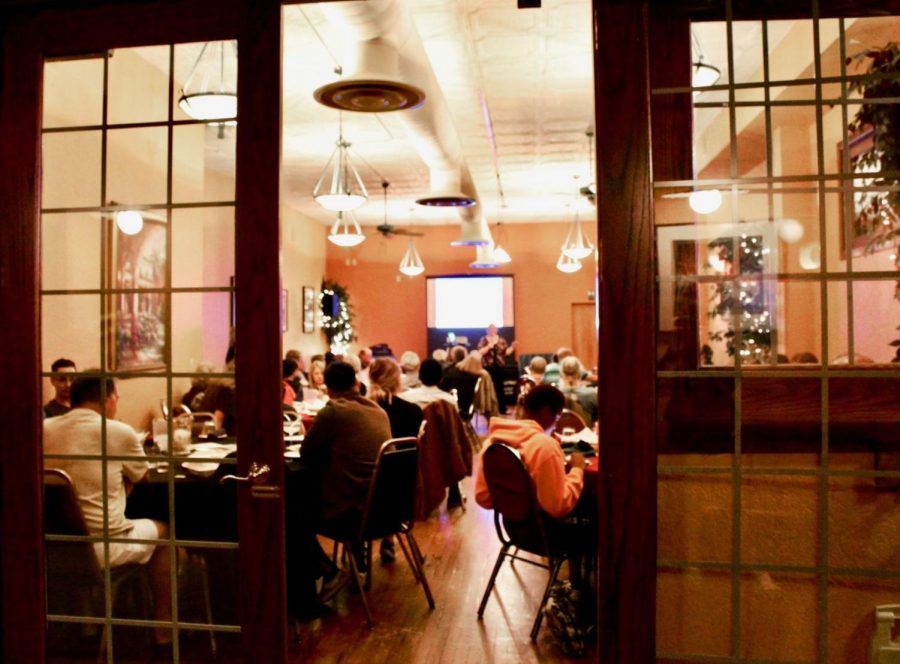STEM Cafés discusses nuclear energy, waste
A view from outside the doors Tuesday during the STEM Café at Eduardo’s Mexican Restaurant, 206 E Lincoln Highway.
October 10, 2019
DeKALB — NIU STEM Café hosted a discussion on nuclear waste Tuesday.
The event was hosted at Eduardo’s Mexican Restaurant, 206 E. Lincoln Highway. Attendants were free to discuss and ask questions regarding nuclear waste.
{{tncms-inline alignment=”right” content=”<ul> <li><strong>What:</strong> Measles Epidemics and Immunizations</li> <li><strong>When:</strong> 6:30 p.m., Nov. 5<br /><br /></li> <li><strong>What:</strong> Musical Bow Research and Creative Artistry in Africa and Brazil</li> <li><strong>When:</strong> 6:30 p.m., Dec. 3</li> </ul>” id=”a9894e9e-e352-4ed5-9398-bf779bdb3ef4″ style-type=”bio” title=”Next STEM Cafés” type=”relcontent”}}
Melissa A. Rose, nuclear engineer for Argonne National Laboratory, was the speaker for the event.
The majority of the discussion focused on the nuclear waste that nuclear power generates.
Rose said all existing nuclear processes including those used in other countries and by Argonne will always leave at least 3% of the input uranium as waste. This waste is radioactive for at least several hundred years.
Rose said efforts are underway to properly store this dangerous leftover waste.
Despite its radioactivity, Rose said nuclear energy is a clean alternative to coal.
Sherrill Morris, chair of allied health and communicative disorders, attended the event.
“There’s a lot of different topics that are intriguing and well presented by a lot of different professionals from diverse fields,” she said.







